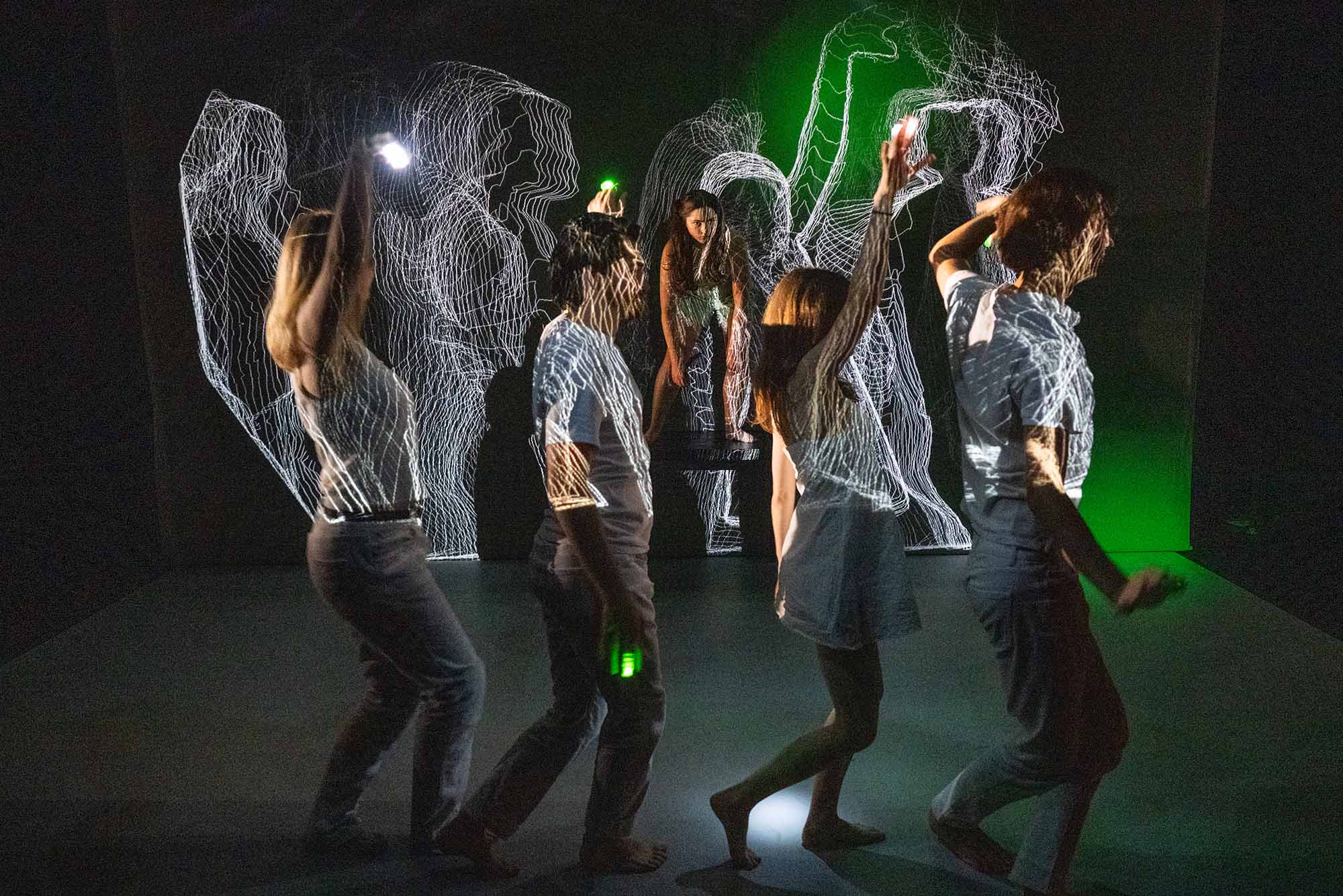Innovative CFA Play Puts Generative AI to the Shakespeare Test
Dream, an iteration of the Bard’s classic A Midsummer Night’s Dream, uses image-projecting software Random Actor to bring the production to life

Dream utilizes Random Actor, a software developed by two CFA faculty members that projects immersive images onto a live performance.
Innovative CFA Play Puts Generative AI to the Shakespeare Test
Dream, an iteration of the Bard’s classic A Midsummer Night’s Dream, uses image-projecting software Random Actor to bring the production to life
This article was originally published in BU Today on October 23, 2025. By Alene Bouranova. Photos by Cydney Scott
EXCERPT
The works of William Shakespeare remain as popular today as when he wrote them in the late 16th century. Their timeless quality is what made one of them the perfect testing ground for use of a novel software in a new multidisciplinary Boston University College of Fine Arts production.
Dream, a 90-minute iteration of Shakespeare’s beloved comedy A Midsummer Night’s Dream, utilizes Random Actor, a machine-learning tool for live performances.
The software, developed here at BU, uses motion capture technology and generative AI to project immersive, interactive images onto the stage, the floor, and even actors’ bodies—adding an element of spontaneity to every performance, according to its creators. The production is a collaboration among all three CFA schools: the School of Theatre, the School of Visual Arts, and the School of Music.
Technically speaking, the play, which premieres Friday, October 24, at 7:30 pm, is a CFA faculty research project, says Dream director and Random Actor cocreator Clay Hopper (CFA’05), a CFA senior lecturer.
Hopper and James Grady, a CFA assistant professor of art, graphic design and BU Spark! creative director, first conceptualized an immersive performance tool around 2017. They developed Random Actor and deployed it in a couple of CFA productions subsequently—including its hard launch during 2021’s Exit the King—but according to Hopper, it wasn’t used to its full capabilities.
After Exit the King, “we worked with developers to build out the software, and we started to become very surprised by what it could do,” Hopper says. (The Duan Family Center for Computing & Data Sciences, the Shipley Center for Digital Learning & Innovation, BU Spark! and countless BU students were instrumental in bringing Random Actor to life, he says.) This year, he, Grady, and Jon Savage, a CFA assistant professor, scene design, set out to stage a new show with Random Actor to “prove the software’s efficacy inside a narrative context,” Hopper says—and thus Dream was, well, dreamed up.
Dream also relies on the talents of School of Music personnel. The entire production is scored with improvised acoustic percussion by Gareth Smith, a CFA assistant professor of music, music education.